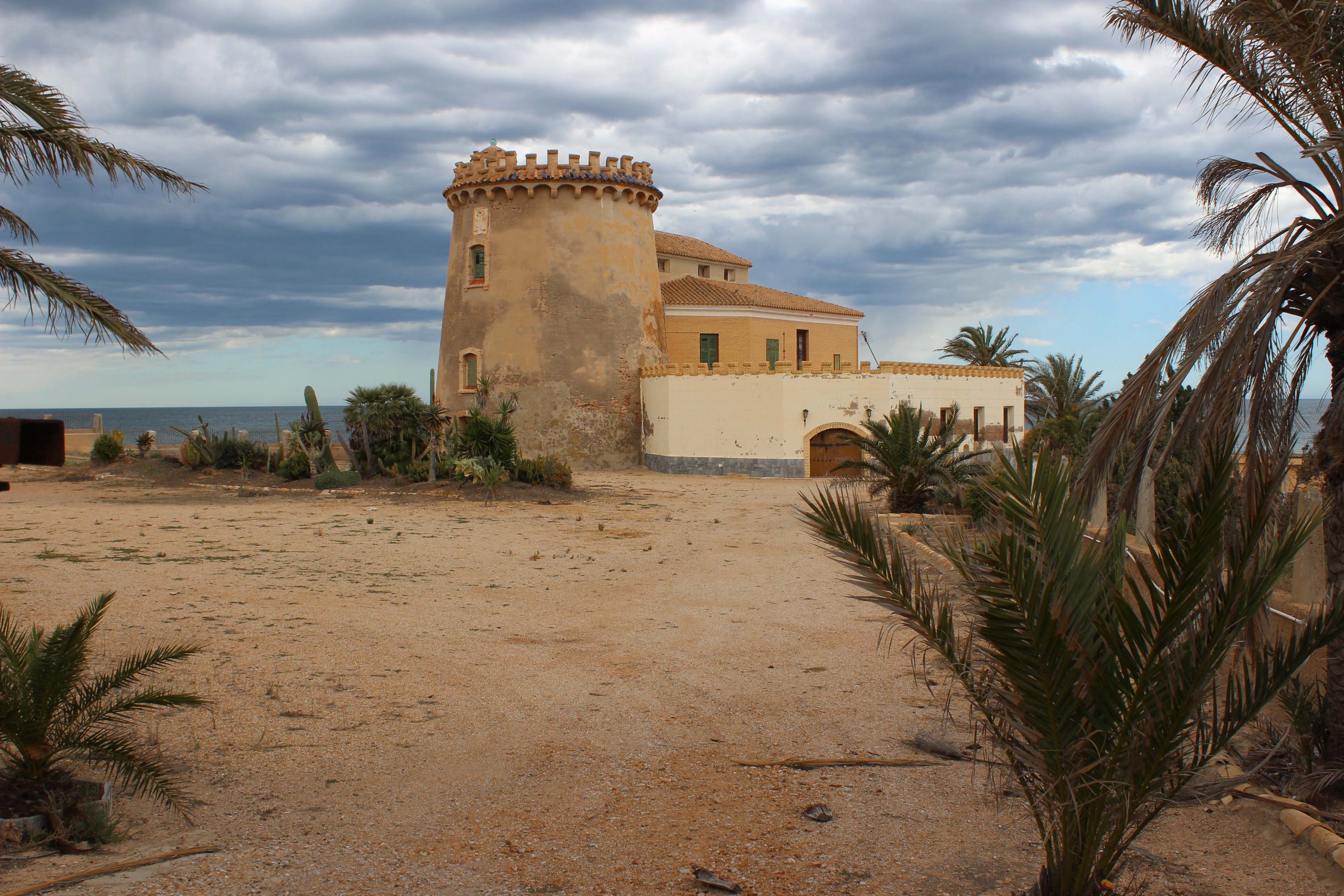Elche’s court of administrative has issued a ruling authorising the authorities of Pilar de la Horadada to access the sixteenth-century, privately owned watchtower, in order to inspect its state of preservation.
The local administration and the General Directorate of Culture and Heritage of the Generalitat have been trying to negotiate a visit with the owners for more than a year because the grounds and the tower, both protected as an Asset of Cultural Interest (BIC), are falling into an increasing state of disrepair.
The municipality now intends to take advantage of this decision to carry out an appraisal of the property as a first step to issuing an expropriation order “in defence of the general interest”.
The lookout watchtower is the most valuable building of historical heritage maintained by the municipality but it continues to be locked up. It can only be seen from the outside and very few residents have had the privilege of seeing what is hidden within its walls. It is the oldest property in the municipality and the council wants to guarantee its preservation at all costs.
The councillor for Public Services, José Francisco Albaladejor, explains that due to the “resistance” of the owners to allow the authorities entry to the grounds and to the building they have appealed to the courts to allow them in to make an evaluation of the building’s condition and to decide which measures are necessary to conserve the tower.

“The family has not wanted to collaborate and we cannot allow the oldest property of the municipality to continue to deteriorate before our eyes, “the councillor defended. However, the owners have the right to appeal the court order to try to stop the visit of the surveyors.
Now that court authorisation has been received, Albaladejo explained that the next step will be to inform the owners when the evaluation will be carried out. Representatives of the local corporation will go along with the municipal secretary, a notary and surveyors to attest the state of the property and determine what conservation actions are necessary. If everything goes according to plan, that work will be done very soon, says the councillor.
The watchtower was built in 1591 as one of the fortifications of the Kingdom of Valencia against the attacks of the Berber pirates until the end of the 19th century when it was sold by public auction to Enrique Fulgencio Fuster y López, the Count of Roche. In 1884 he built a semi-detached house in the grounds as a summer residence.
The building is an asset of Cultural Interest and, according to the Law of Valencian Heritage, it must open for public visits at least four times a month. But the family that holds the noble title today has so far refused and continues to keep its contents secret.
The watchtower and the adjacent house are located on an imposing estate overlooking the Mediterranean. It even has a private staircase that gives access to the Conde beach. The tower has a ground floor, two floors and a terrace with a security gate. Despite the building’s absolute decadence, it’s green wooden windows are rickety and the heraldic shield that the crown shows obvious signs of deterioration.
The metal fence that borders it is old and rusty. The wall that holds it, cracked and full of holes. Of the gardens that once were a garden, only wild stubble remains and neglected palm trees. The painting of the walled courtyard is peeling. The access doors are closed, the bell does not work and there is only one element that would make one think that someone lives there: a television Aerial.
The locals say that for most of the year nobody lives in the house and the owners only holiday in it for a few weeks in summer. Despite its status, since 1995 the tower has been registered in the General Registry of Real Estate of Cultural Interest of the Spanish Historical Heritage. As such the owners enjoy important tax privileges and neither do they pay IBI.
The mayor of Pilar de la Horadada, Ignacio Ramos, says that from his early days of office, in 1995, he has tried to negotiate with the owners to enable the opening of the watchtower and provide the care that the estate needs, although a minimum agreement has never been reached.
According to him, the owners do not want to talk about this matter claiming that it is an invasion of their privacy. The mayor believes that the Generalitat Valenciana would have to ensure the conservation of this heritage and demands that more work be done in this regard. However, in his opinion, the best option would be for the grounds and the watchtower to become municipal property.
Ramos argues that the owners continue to reject any type of sale and believes that the City Council must take ownership by expropriation. He recognises that it is not an easy road and that its value is not quantified, but he also insists that it is the only option available in order to preserve this valuable heritage that remains locked up today.


















